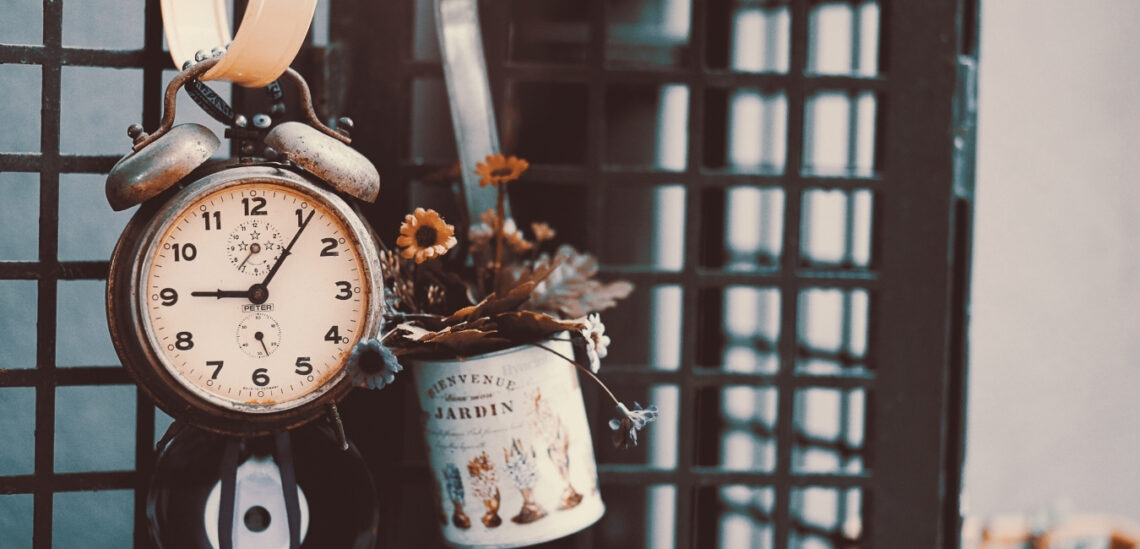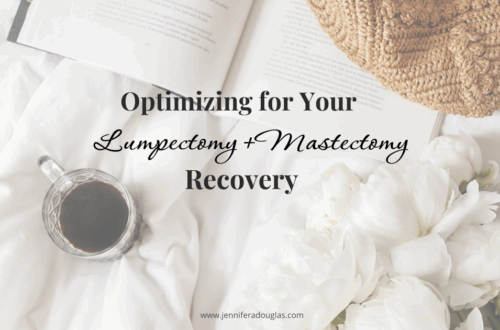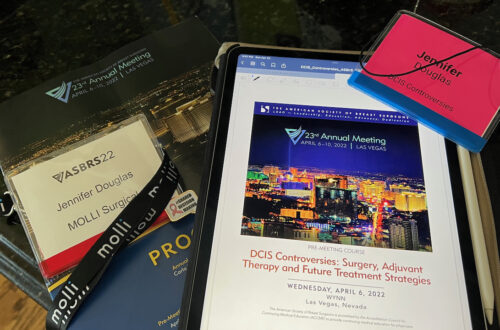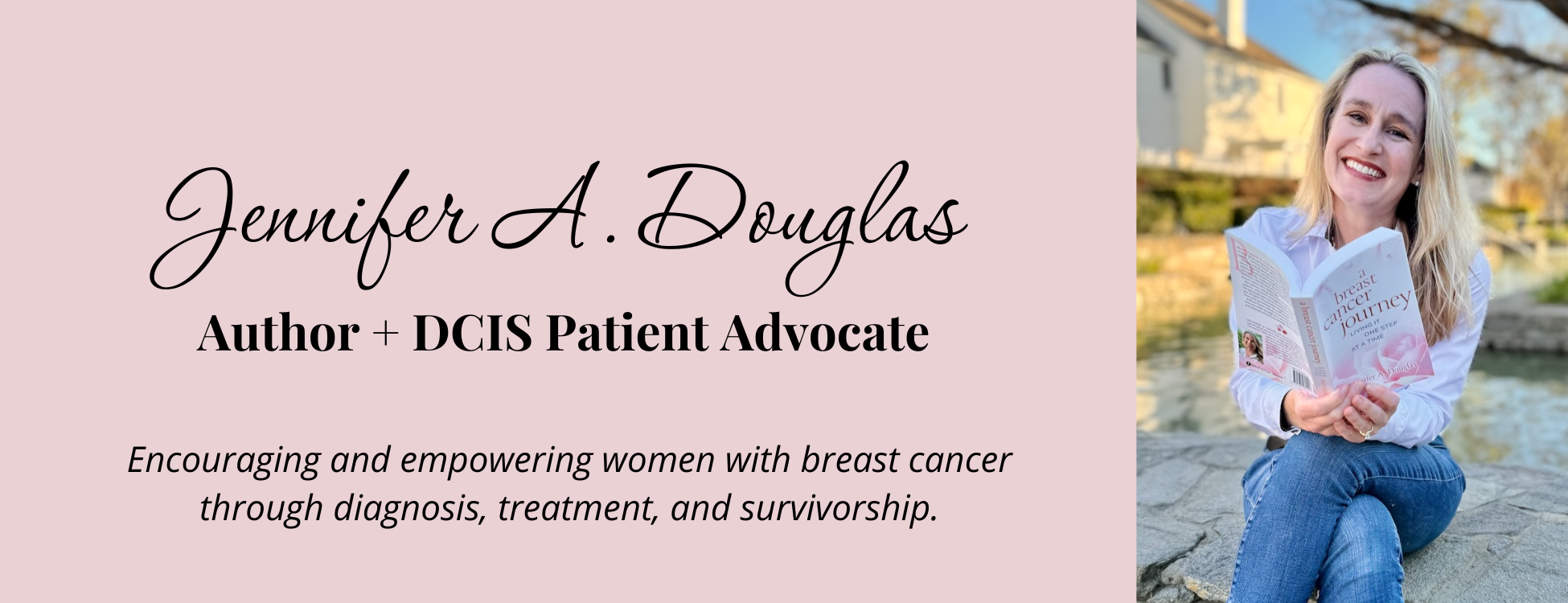
Walking Through Cancer Fatigue During Radiation Treatment
When I was undergoing radiation treatment for my breast cancer, I experienced major fatigue as a side effect. I was informed that I might expect fatigue, but I was surprised by how quickly it hit me. I felt extreme physical fatigue after only a few treatments. I was also still dealing with the emotional and mental fatigue of the cancer diagnosis. To say that I was tired would be an understatement.
I wrote about the three facets of cancer fatigue in another post. Physical, mental, and emotional fatigue are intertwined during the cancer diagnosis, treatment, and recovery phases. In this post, I’ll share seven ways that I walked through the physical aspects of cancer fatigue during my radiation treatment.
7 Ideas to Help Manage Your Energy During Radiation Treatment
1. When Do You Have Physical Energy?
I had my radiation treatments at 2:45 in the afternoon. I quickly discovered that I had more physical energy in the mornings. I would try to prioritize my day to get the most important things done in the morning. If I had lessons that I needed to go over with the boys, it was best that I did it when I had the physical energy to work with them. This was not after my treatments in the afternoon.
If you have your treatment in the morning, your energy cycle might be different. Perhaps you get more physical energy in the evenings. I would encourage you to note the time of day that you feel like you have more energy. Then, plan the most important things when you might feel the best.
2. How Long Does Your Physical Energy Last?
One of the things that I noticed during radiation treatment was that my physical energy didn’t last very long. I couldn’t do anything physical for much longer than 15 minutes. That meant that I needed to be aware of how long things took to plan effectively.
Make a Cup of Tea
I am not a huge tea drinker. But, I found that drinking a cup of tea in the morning was therapeutic and comforting. Plus, I used the time it took to make a cup of tea to do the morning kitchen jobs.
I would set the teapot to boil, then start to empty the dishwasher. As I was finishing up, the water would start to boil. So, I would prepare my tea and then complete the morning kitchen tasks while it was steeping. I would use the tea timer to help me complete the job. I knew that I had just enough energy to work until the timer was done.
Then, I would stop. Wherever I was in the job, it was time to take a break. I sat down on the couch and enjoyed my cup of tea. If the boys needed any help, this was a good time for them to come over and ask for it.
I had just enough physical energy to make a cup of tea. Then, I would rest while drinking it.
Use a Timer
If I wasn’t feeling like a cup of tea, I would just set a timer for 10 minutes. Then, I would do just a little bit of the homemaking tasks. It could be moving a load of laundry over or making my bed. I knew that the timer would go off, so I could just focus on doing the task ahead. The timer permitted me to stop and also made sure that I didn’t exhaust myself.
3. What Day Of the Week Is It?
Radiation fatigue is cumulative. At the beginning of the week, I would have more energy. Monday was usually my best day because I had Saturday and Sunday off of treatment.
I ended up using that day to do a few of my more difficult homemaking tasks. On Mondays, I would look at my meal planning app and make sure that I placed grocery orders for the week’s breakfasts and lunches. Thankfully, our church brought us dinners during my radiation treatment, so I wasn’t cooking.
Take note of when you have more energy and use that day to do some of the more challenging things on your schedule.
4. Go For A Walk
This seems counterintuitive, but walking and light exercise can actually help with the fatigue. During radiation treatment, I tried to go on a morning walk with my husband. We have two beagles, and they behave so much better when they have been well walked. I would take our older dog, Elwood, who was a little easier to walk, and we would walk around our neighborhood.
I didn’t walk fast during the radiation treatment because I was fatigued. But, I am so glad that I could get out and see nature and enjoy the fresh air. I usually felt exhausted when I got back, but my spirit was refreshed from the walk.
In fact, light exercise such as walking has been medically linked to a reduction in fatigue from radiation treatment:
- https://pubmed.ncbi.nlm.nih.gov/9243585/
- https://abcnews.go.com/Health/OnCallPlusTreatment/reduce-fatigue-radiation-treatment/story?id=3644910
- https://www.nbcnews.com/health/cancer/exercise-best-cure-fatigue-caused-cancer-study-n728241
5. Take Lots of Breaks
I took a lot of breaks during my radiation treatment because of my physical fatigue. I would rest on the couch for quite a bit of the day. I was able to supervise the virtual schooling because that was happening in the room right next to me. If the boys needed my help, they would come to me and ask.
It felt strange to spend so much of my day on the couch, but it was necessary. I had very little physical energy during my radiation treatment.
I ended up watching a lot of TV on my iPad during this time. I’m not usually a TV watcher during the day, but I had no mental energy to read, and I needed to make sure that I didn’t exhaust myself. It turns out that a 45 minute TV show provided the right amount of break time for me.
I would rest on the couch, put my headphones on, and enjoy a show. During my cancer treatment, I ended up watching the entire series of The Mentalist on Amazon Prime. All seven seasons!
I watched the show on my iPad, which allowed me to still monitor the virtual school. If I had put it on the TV screen, it would have been too difficult for the kids to manage to keep doing their lessons. But, with my noise-canceling headphones and my iPad, I was able to enjoy the show and still be physically present downstairs to supervise.
When the show would finish, I would get up and do ten or fifteen minutes of something. It might be putting a few dishes away or taking a quick shower. Once I was tired again, I went right back to rest.
6. Delegate, Eliminate, Simplify
I couldn’t do many of the tasks I was used to doing while I was in cancer treatment. So, I learned that I needed to ask for help, remove the activity from my calendar, or simplify the item.
I said no to social events that happened in the evening because I was too exhausted after treatment. I also stopped taking my French class during radiation treatment. It was an evening class, and I wasn’t sure I would be able to drive, take the class, and then safely drive home. I’m glad I made that decision because I was most exhausted in the evenings.
Take a hard look at your calendar and see what you can eliminate, delegate, or simplify during treatment. Radiation doesn’t last forever, and your physical energy will eventually come back.
7. Go to Bed Early
I went to bed right after dinner during radiation treatment. I would be sitting at the dinner table, and then I would start staring into space. Dave and the boys would look at me and then tell me to go to bed. I was done for the day.
I sat in bed for a little while, sometimes watching another TV show. Then I fell asleep. It was a lot earlier than I usually went to bed. But I was so physically exhausted that I needed the rest.
I didn’t nap a lot during treatment, but I think that is because I was getting so much sleep at night. Getting a couple of extra hours meant that I woke up feeling more refreshed. I would take advantage of the slight increase in energy to be functional during the day for school.
Fatigue is a common and expected side effect of radiation treatment. By resting and relaxing, we are allowing our body to repair after each treatment. I hope that these ideas can help you manage and walk through the physical fatigue you might experience during radiation. If you have any other tips to share, I would love to hear them.
Jennifer Douglas
Jennifer Douglas is an author, patient advocate, and DCIS breast cancer survivor. After navigating her own breast cancer journey in 2019, she began writing and encouraging others who were newly diagnosed. Her resources include her book, "A Breast Cancer Journey: Living It One Step at a Time," and her online support course, "Encourage: Breast Cancer and Beyond." Jennifer also actively supports patients through her online presence and direct involvement in communities and support groups, offering guidance and encouragement every step of the way.


You May Also Like

Optimizing Home Life for Your Lumpectomy or Mastectomy Recovery
February 5, 2021
DCIS Matters: 15 Takeaways from the 2022 ASBrS DCIS Controversies Course
April 24, 2022

3 Comments
Kristie T Thome
How many total treatments did you have and how far into the radiation did the fatigue start? I know you said fairly early.
Jennifer Douglas
I had 20 total treatments. The fatigue started within the first 3 days for me. I really felt it!
Pingback: